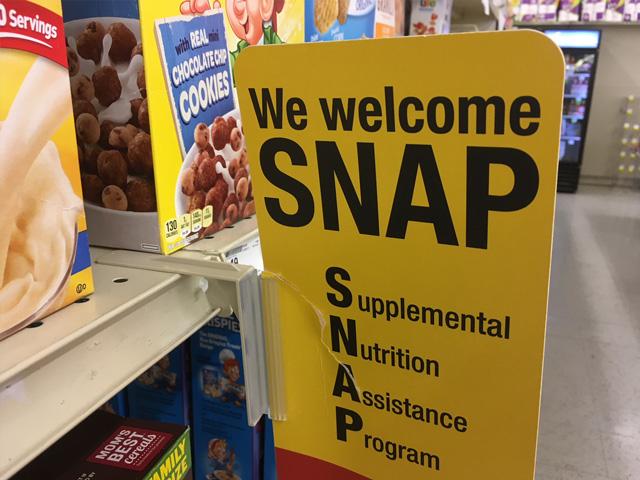USDA to Stop Tracking Food Insecurity
Trump Administration to Terminate Household Food Insecurity Reports
WASHINGTON (DTN) -- The Trump administration announced Saturday that USDA will no longer publish reports on household food insecurity, a decision that was immediately denounced by the anti-hunger movement.
The decision comes just months after President Donald Trump's "One Big Beautiful Bill Act" made the largest cuts to Supplemental Nutrition Assistance Program (SNAP) in the program's history.
A USDA news release that was not attributed to an official said, "The U.S. Department of Agriculture announced the termination of future Household Food Security Reports. These redundant, costly, politicized, and extraneous studies do nothing more than fear-monger."
"For 30 years, this study -- initially created by the Clinton administration as a means to support the increase of SNAP eligibility and benefit allotments -- failed to present anything more than subjective, liberal fodder," the statement said.
"Trends in the prevalence of food insecurity have remained virtually unchanged, regardless of an over 87% increase in SNAP spending between 2019-2023.
"USDA will continue to prioritize statutory requirements and where necessary, use the bevy of more timely and accurate data sets available to it."
The last Food Insecurity report, released in September 2024, showed 13.5% of American households were food insecure at the end of 2023, up from 12.8% at the end of 2022. That equates to about 45 million people. Also, roughly 8.9% of households with children were food insecure. The report also showed that about 58% of food-insecure households participate in SNAP, or WIC, or the school lunch program -- the three largest federal food nutrition programs.
P[L1] D[0x0] M[300x250] OOP[F] ADUNIT[] T[]
USDA has conducted the annual survey since 1995. As the 2024 report noted, "Annual monitoring of food security contributes to the effective operation of Federal food and nutrition assistance program, as well as private food assistance programs and other initiative aimed at reducing food insecurity."
The Alliance to End Hunger, which includes corporations such as Amazon and Cargill, nonprofits, church groups, universities, foundations and individuals, called the decision to end the study "deeply troubling," and called on USDA to reverse course.
Eric Mitchell, the president of the Alliance, said in an email, "The U.S. Department of Agriculture's decision to discontinue its annual survey tracking food security data is deeply troubling. By cancelling the survey, USDA is sending a signal that tracking and battling hunger is no longer a priority."
"For decades, the annual survey has served as a barometer of the effectiveness of our nation's policies and programs supporting lower-income people and families," Mitchell said.
"With continuing worries about food inflation, as well as significant cuts to America's largest food assistance program -- SNAP -- this move is a blow to policymakers and advocates who rely on the data to improve the lives of our food insecure neighbors.
"It is further troubling that the decision comes amid predictions that hunger may increase in the coming months and years. Hunger will not disappear simply because it is no longer tracked.
"The Alliance to End Hunger urges USDA to reconsider its decision on this critical data, which is necessary to improve lives and strengthen communities across the country."
The decision received national news coverage over the weekend.
The Wall Street Journal reported the decision to discontinue the survey for 2025 was announced in meetings with USDA employees this past week by an administrator for USDA's Economic Research Service.
USDA spokesman Alec Varsamis told WSJ that the 2024 report will be released on Oct. 22, but the 2025 report has been discontinued.
The New York Times noted, "The move by the Agriculture Department strips the government of its main gauge of Americans' ability to access adequate meals, and will impede researchers' efforts to track the coming cuts in nutritional aid."
Over the same weekend, The New York Times also reported sales of Hamburger Helper and other cheap food items have risen. "Uncertainty about the economy and higher tariffs levied on goods from a variety of countries have led many consumers to refocus their spending on essentials or items that are good values, while cutting back on extras or unnecessary spending."
See, "Household Food Security in the United States in 2023," https://ers.usda.gov/…
Jerry Hagstrom can be reached at jhagstrom@nationaljournal.com
Follow him on social platform X @hagstromreport
Chris Clayton can be reached at Chris.Clayton@dtn.com
Follow him on social platform X @ChrisClaytonDTN
(c) Copyright 2025 DTN, LLC. All rights reserved.




